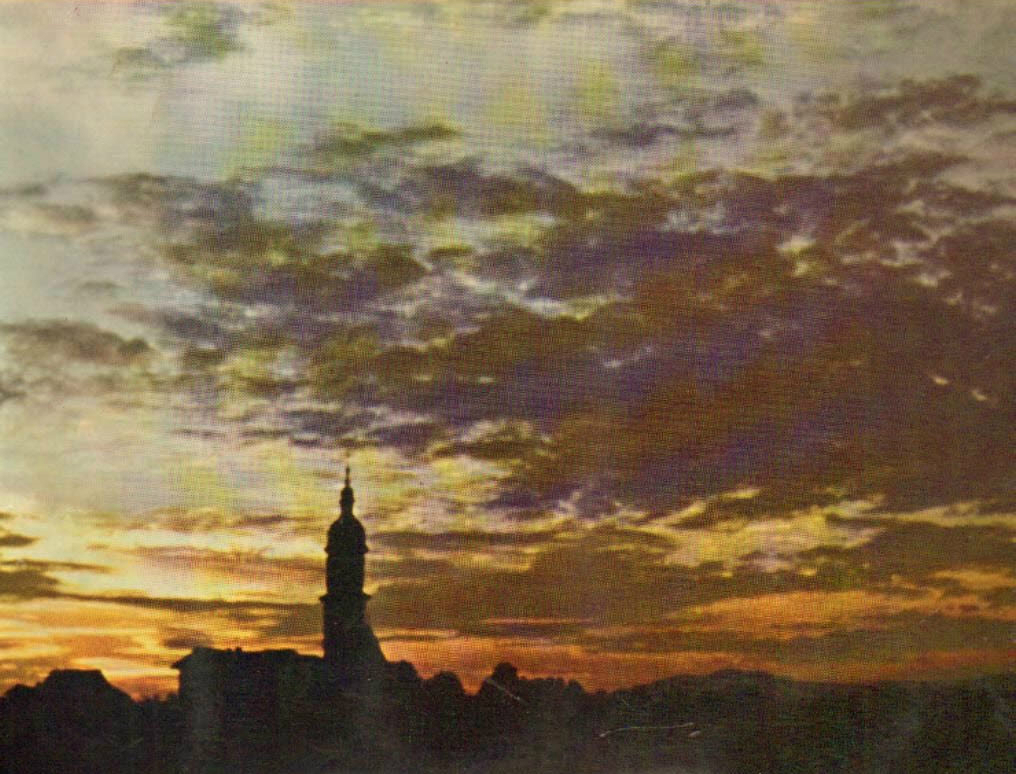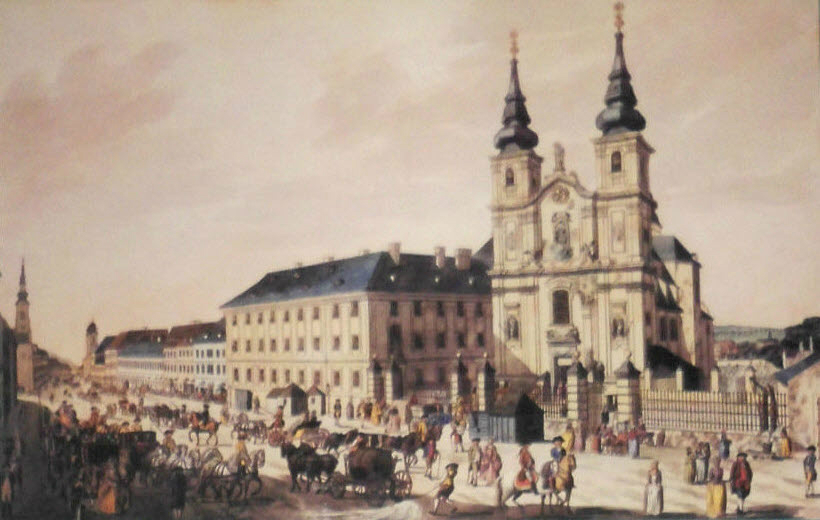|
앨범: 슈베르트: 聖음악 합창곡집 (1987 Profil)
Franz Schubert (Vienna) (1797 - 1828)
1. Miriam's song of victory - Track 전곡 연주 |
| |
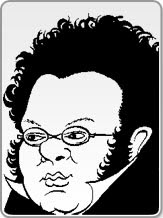
|
|
Album Title: Schubert: Chorwerke (Choral Works)
Composer: Franz Schubert (Vienna) (1797 - 1828)
Lyricist: Bible-Old Testament, Franz Grillparzer, Friedrich von Schiller, Walter Scott, Adam Storck, Johann Peter Uz
Conductor: Frieder Bernius
Performer: Krisztina Láki (Soprano)
Andreas Rothkopf (Piano)
Choir: Stuttgart Chamber Chorus (Kammerchor Stuttgart)
Audio CD (January 1, 1986)
Number of Disc: 1
Format: Audio CD
Spars Code: DDD
Recorded in: Stereo
Label: Profil - Edition Günter Hänssler
Copyright: (C) ℗ 1987 Profil
Total Length: 48:25
Genres: Classical, Choral - Sacred, Choral - Secular, Cantata, Hymn, Psalm, Quartet, Romantic Period, Song
Styles: Choral |

|
Composer Franz Schubert (Vienna) (1797 - 1828)
Conductor Frieder Bernius
Performer Krisztina Láki (Soprano)
Andreas Rothkopf (Piano)
Ensemble Stuttgart Chamber Choir
|
1. Mirjams Siegesgesang, for soprano, chorus & piano, D. 942 (Op. posth. 136): Miriam's song of victory (17:37)
Catalog No. D 942
Lyricist Franz Grillparzer
Genre Cantata / Romantic Period / Song
Date Written 03/1828; Vienna, Austria
Period Romantic
2. Gott im Ungewitter ("Du Schrecklicher"), quartet for mixed voices & piano, D. 985 (Op. posth. 112, No. 1): God in the storm (5:29)
Catalog No. D 985
Lyricist Johann Peter Uz
Genre Quartet / Romantic Period
Date Written ?1827; Vienna, Austria
Period Romantic
3. Der 23. Psalm ("Gott ist mein Hirt"), for female voices & piano, D. 706 (Op. posth. 132): The 23rd Psalm (6:10)
Catalog No. D 706
Lyricist Bible - Old Testament
Genre Psalm / Romantic Period
Date Written 12/1820; Vienna, Austria
Period Romantic
Country Austria
4. An die Sonne ("O Sonne, Konigin der Welt"), for mixed voices & piano, D. 439: 'Oh Son, Queen Of The World' (6:08)
Catalog No. D 439
Lyricist Johann Peter Uz
Genre Romantic Period
Date Written 1816
Period Romantic
5. Coronach - Totengesang der Frauen und Madchen ("Er ist uns geschieden"), for female chorus & piano, D. 836 (Op. 52 No. 4): Coronach (Dirge of the women and Girls) (5:57)
Catalog No. D 836
Lyricist Walter Scott, Adam Storck
Genre Romantic Period
Date Written 1825; Germany
Period Romantic
6. Hymne an den Unendlichen ("Zwischen Himmel und Erd'"), quartet for mixed voices & piano, D.232 (Op. posth. 112, No. 3): Hymn to the Infinite one (4:53)
Catalog No. D 232
Lyricist Friedrich von Schiller
Genre Hymn / Quartet / Romantic Period
Date Written 07/11/1815; Vienna, Austria
Period Romantic
7. Gott der Weltschöpfer ("Zu Gott"), quartet for mixed voices & piano, D. 986 (Op. 112, No. 2): God, Creator of the world (2:11)
Catalog No. D 986
Lyricist Johann Peter Uz
Genre Quartet / Romantic Period
Date Written ?1827
Period Romantic |

Track List
1. 미리암의 승리의 노래
2. 폭풍 속의 하느님
3. 시편 23장
4. 아들아, 세상의 여왕...
5. 장송곡: 여성들과 소녀들의 비가
6. 끝없는 찬송
7. 하느님, 세상의 창조자 | |
Schubert: Choral Works - Frieder Bernius (1987 Profil)
Review
Perhaps too much of a not-good-enough thing, this 1987 recording of choral works by Schubert will be interesting primarily to those who know the composer's works in other genres. It's not that director Frieder Bernius, soprano Krisztina Laki, pianist Andreas Rothkopf, and especially the Kammerchor Stuttgart don't do their best for Schubert's music. Their performances here are polished, dedicated, and spirited throughout. one believes in Laki's enthusiasm in the chamber cantata "Mirjam's Song of Victory" as one believes in the women of the Kammerchor's grief in "Coronach" (Dirge of the Woman and Girls), but, heard one and after another, Schubert's choral works start to sound the same very quickly. Naturally, this could not be said of the composer's work in other genres; his piano sonatas, his chamber works, his symphonies, and especially his lieder are wonderfully varied. But despite works of undoubted inspiration -- the "Hymn to the Infinite one" and "God, Creator of the World" are nearly in the same league as his better works in other genres -- the choral works performed here seem to lack Schubert's spark of genius. Hänssler's reissue of Intercord's 1987 recording is clear but a tad shallow and a bit hard.
by James Leonard.

Frieder Bernius, Kammerchor Stuttgartn
|

|
The two main characteristics of the artistic activities of conductor Frieder Bernius are his individual conception of sonority and his quest for historical fidelity to every style in European music since 1600. Consequently he has founded his own ensembles (Kammerchor Stuttgart, Barockorchester Stuttgart, Klassische Philharmonie Stuttgart and Hofkapelle Stuttgart) and combined them in one institution, the Musik Podium Stuttgart. These ensembles employ a variety of formations and pitches. Their circa 12 annual projects fill the greater part of Bernius’s calendar. In addition he regularly works with the Kammerphilharmonie Bremen, the Streicherakademie Bozen and the World Youth Choir of the Jeunesses Musicales. During his 30 years as a freelance musician, Frieder Bernius has mastered a diverse repertoire that embraces every genre between 1600 and 2000. In recent years he has concentrated on Baroque vocal music (Zelenka, Bach and his sons, Handel), vocal-orchestral music of the 19th and 20th centuries (Mendelssohn to Ligeti), operatic first performances from Jommelli to Schubert, early Romantic symphonies (Kalliwoda and Burgmüller), incidental music (Mendelssohn, Grieg) and a cappella works of the 19th and 20th centuries. Invitations to international festivals and concert tours have taken him across the whole of Europe and on several occasions to North America, Israel and Asia. Many of his more than 80 CDs have been awarded prizes.
|
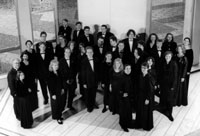
|
During the more than 30 years of its existence, the Kammerchor Stuttgart has mastered the entire repertoire of European choral music from the early Baroque to works of the 21st century. The circa 80 singers appear in various different formations – from 20 members in a cappella pieces of the 19th and 20th centuries (with works of up to 16-parts and solo demands) and Baroque pieces (involving male altos and period specialists) to a maximum of 60 singers for oratorios and operas of the 18th to 20th centuries. The singers come from the whole of Germany, and a few from neighboring countries. The artistic success of the choir has been reflected in invitations to all the major European festivals and more than 70 CDs, many of them gaining international record awards.

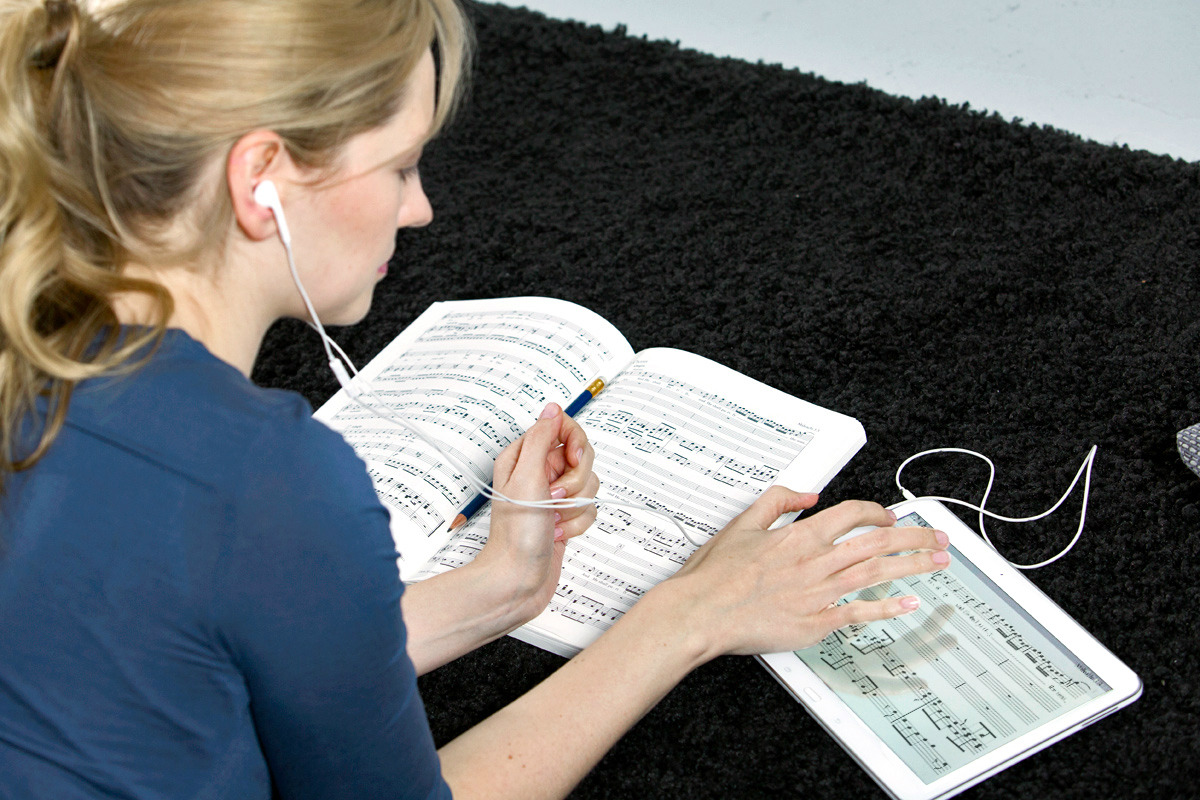




|
